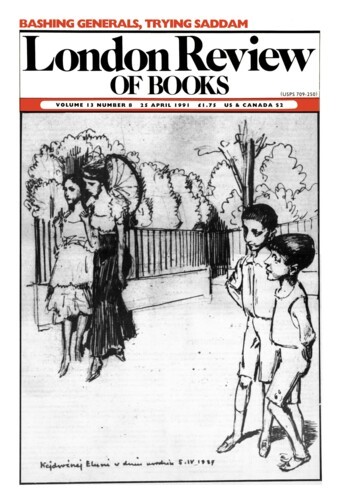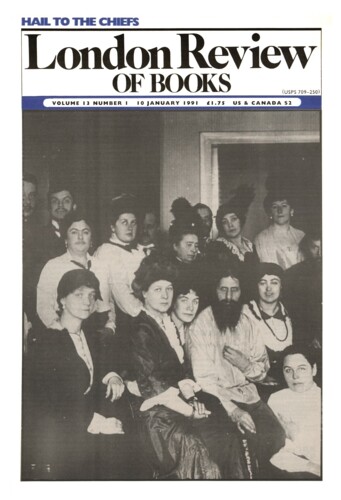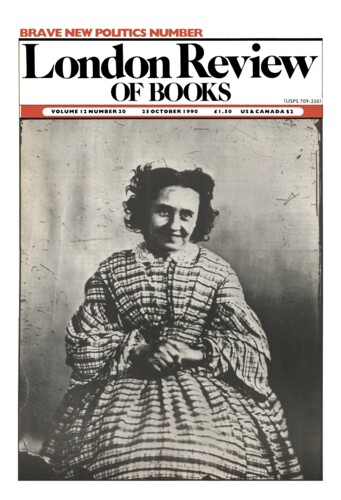Somewhere
Walter Nash, 14 May 1992
As a boy I had no inclination to follow the yellow brick road, arm in arm with the Tin Man and the Scarecrow and the Cowardly Lion; warlocks and Munchkins were nothing to me, swaddled in the scented darkness of the dear old Palace Picture House, I had sterner fancies, buccaneer visions. I suppose I found The Wizard of Oz sentimental – milk pudding for lasses, no provender for a chap bent on being first up the ladder with Errol Flynn, cutlass in teeth: and yet now, in my days of penultimate dreaminess, I am moved by the recollection of Garland’s luminous eye, and that curiously sweet-metallic voice singing ‘Somewhere over the rainbow’ – yearning upward an octave on the first two syllables, ‘somewhere’. I recognise the sad passion for Somewhere – the dreamer’s everlasting yonder, the romantic’s thitherland, that possible realm where we shall surely find our true home, if only the heart will hold out.’





